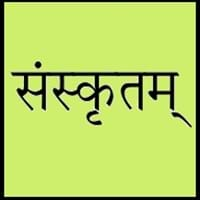Zulu vs Sanskrit
Countries
South Africa
India
National Language
South Africa
India
Second Language
Botswana, Lesotho, Malawi, Mozambique, Swaziland, Zimbabwe
Not spoken in any of the countries
Speaking Continents
Africa
Asia
Minority Language
Not spoken in any of the countries
Not spoken in any of the countries
Regulated By
Pan South African Language Board
Not Available
Interesting Facts
- The meaning of word "Zulu" means "Sky"and Zulu was the name of the ancestor who founded the Zulu royal line in about 1670.
- Zulu language has many loanwords borrowed from Afrikaans and English Languages.
- Sanskrit language has highest number of vocabularies than any other language.
- Sanskrit Language has proved to help in speech therapy, also it increases concentration and helps to learn maths and science better.
Similar To
Xhosa Language
Old German Language
Derived From
Not Available
Prakrit Language
Alphabets in
Zulu-Alphabets.jpg#200
Sanskrit-Alphabets.jpg#200
Writing Direction
Not Available
Left-To-Right, Horizontal
Hello
Sawubona
नमस्कारः (namaskāraḥ)
Thank You
Ngiyabonga
धन्यवादाः (dhanyawādāh)
How Are You?
unjani
कथमस्ति भवान् (kathamasti bhawān)
Good Night
okuhle ebusuku
शुभरात्री (shubharātrī)
Good Evening
okuhle kusihlwa
शुभः सायंकालः
Good Afternoon
okuhle ntambama
शुभ दुपार
Good Morning
okuhle ekuseni
सुप्रभातम् (suprabhātam)
Please
Ngiyacela
कृपया (kripayā)
Sorry
Ngiyaxolisa
कृपया क्षम्यताम् (kripayā kshamyatām)
Bye
bye
पुनः मिलामः(punah milamah)
I Love You
Ngiyakuthanda wena
त्वामनुरजामि (twāmanurajāmi)
Excuse Me
Uxolo
कृपया क्षम्यताम् (kripayā kshamyatām)
Dialect 1
Qwabe
Not present
Where They Speak
Gabon, South Africa
Not Available
Dialect 2
central KwaZulu-Natal Zulu
Not present
Where They Speak
Georgia, South Africa
Not Available
Dialect 3
Ndebele
Not present
Where They Speak
Zimbabwe
Not Available
Speaking Population
Not Available
Second Language Speakers
Not Available
Native Name
isiZulu
संस्कृतम् (saṃskṛtam)
Alternative Names
Isizulu, Zunda
Not Available
French Name
zoulou
sanskrit
German Name
Zulu-Sprache
Sanskrit
Pronunciation
Not Available
[səmskr̩t̪əm]
Ethnicity
Zulu people
Not Available
Language Family
Niger-Congo Family
Indo-European Family
Subgroup
Benue-Congo
Indo-Iranian
Early Forms
urban Zulu
Vedic Sanskrit
Standard Forms
Deep Zulu
Sanskrit
Language Position
Not Available
Signed Forms
Not Available
Not Available
Scope
Individual
Individual
ISO 639 6
Not Available
Not Available
Glottocode
zulu1248
sans1269
Linguasphere
99-AUT-fg
No data available
Language Type
Living
Ancient
Language Linguistic Typology
Subject-Verb-Object
Subject-Object-Verb
Language Morphological Typology
Not Available
Synthetic
Zulu and Sanskrit Language History
Comparison of Zulu vs Sanskrit language history gives us differences between origin of Zulu and Sanskrit language. History of Zulu language states that this language originated in 19 whereas history of Sanskrit language states that this language originated in 2000 B.C.. Family of the language also forms a part of history of that language. More on language families of these languages can be found out on Zulu and Sanskrit Language History.
Zulu and Sanskrit Greetings
People around the world use different languages to interact with each other. Even if we cannot communicate fluently in any language, it will always be beneficial to know about some of the common greetings or phrases from that language. This is where Zulu and Sanskrit greetings helps you to understand basic phrases in Zulu and Sanskrit language. Zulu word for "Hello" is Sawubona or Sanskrit word for "Thank You" is धन्यवादाः (dhanyawādāh). Find more of such common Zulu Greetings and Sanskrit Greetings. These greetings will help you to be more confident when conversing with natives that speak these languages.
Zulu vs Sanskrit Difficulty
The Zulu vs Sanskrit difficulty level basically depends on the number of Zulu Alphabets and Sanskrit Alphabets. Also the number of vowels and consonants in the language plays an important role in deciding the difficulty level of that language. The important points to be considered when we compare Zulu and Sanskrit are the origin, speaking countries, language family, different greetings, speaking population of these languages. Want to know in Zulu and Sanskrit, which language is harder to learn? Time required to learn Zulu is 44 weeks while to learn Sanskrit time required is 20 weeks.





